2024 Subaru Crosstrek First Drive Review: Like it before? You still will

PALM SPRINGS, Calif. – Subcompact SUVs are gaining in popularity and for good reason. They deliver the elevated ride height and cargo capacity that so many SUV drivers desire, along with the kind of maneuverability, fuel efficiency and lower price expected of smaller sedans or hatchbacks. These pint-sized utes are a great alternative to larger SUVs, but if you’re also interested in straying off the pavement, one of the best choices has been the Subaru Crosstrek. Now there’s a new one.
We had the opportunity to drive the redesigned 2024 Subaru Crosstrek through California’s low desert to see for ourselves how this new, third-generation model performs as both a daily commuter and a rugged adventure vehicle. The 2024 Crosstrek shares the same platform as the second generation, but this time around, the chassis benefits from a 10% increase in structural rigidity, which improves safety, handling, and comfort.
From the outside, the 2024 Crosstrek doesn’t break new ground in terms of styling (much like the related 2024 Subaru Impreza). It retains the lifted stance, trapezoidal grille, and tapering roofline from before but adds a bit more rugged personality with chunkier black plastic elements that flank the larger and frameless grille. Exterior dimensions are almost identical to the last Crosstrek too, with only a fraction of an inch difference here or there. On top is a substantial roof rack that can carry as much as 176 pounds when in motion or up to 700 lbs if you’re parked and want to set up a roof-top tent.
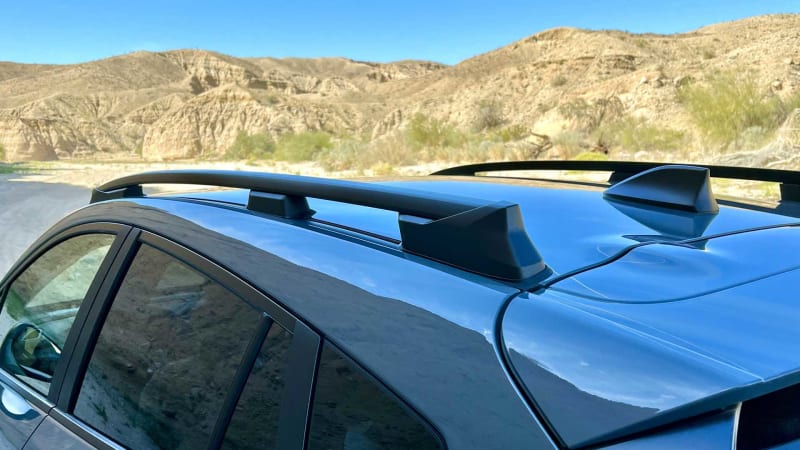
When the 2023 Crosstrek goes on sale this spring, it will be offered in the Base trim for $26,290 (including $1,295 in destination fees) or Premium trim for $27,440. Both are powered by a 2.0-liter four-cylinder engine that produces 152 horsepower and 145 pound-feet of torque. Arriving in the summer will be the Sport ($30,290) and Limited ($32,190), which are upgraded to a 2.5-liter engine that’s good for 182 hp and 178 lb-ft. Both of these engines are carryovers from the previous generation and are paired with a continuously variable transmission (CVT) and standard all-wheel-drive. Sorry, a manual transmission is no longer offered and Subaru was tight-lipped when asked whether the plug-in hybrid Crosstrek would eventually return.
Fuel economy takes a very slight hit for the 2024 models. The 2.0-liter is estimated at 27 mpg city, 34 mpg highway and 29 mpg combined, while the 2.5-liter barely goes down to 26/33/29 mpg. That’s a drop of 1 mpg across the board compared to last year. Those are still decent estimates for the class, especially for a vehicle with off-road capabilities. By comparison, the Ford Bronco Sport and Jeep Renegade are rated 26 mpg combined or worse. Combined with the Crosstrek’s 16.6-gallon gas tank, you should easily travel past 500 miles on the highway and have little fear of running out if you’re in the wilderness.
We drove the Premium trim with the smaller engine and found it no more than adequate when compared to other SUVs in the class. Considering it’s powered by the same engine as last year, we expect it to accelerate to 60 mph in the 9 to 10-second range, which is slow for almost any SUV these days. If the previous Crosstrek is any indication, the 2.5-liter engine could shave almost 2 seconds off that time.
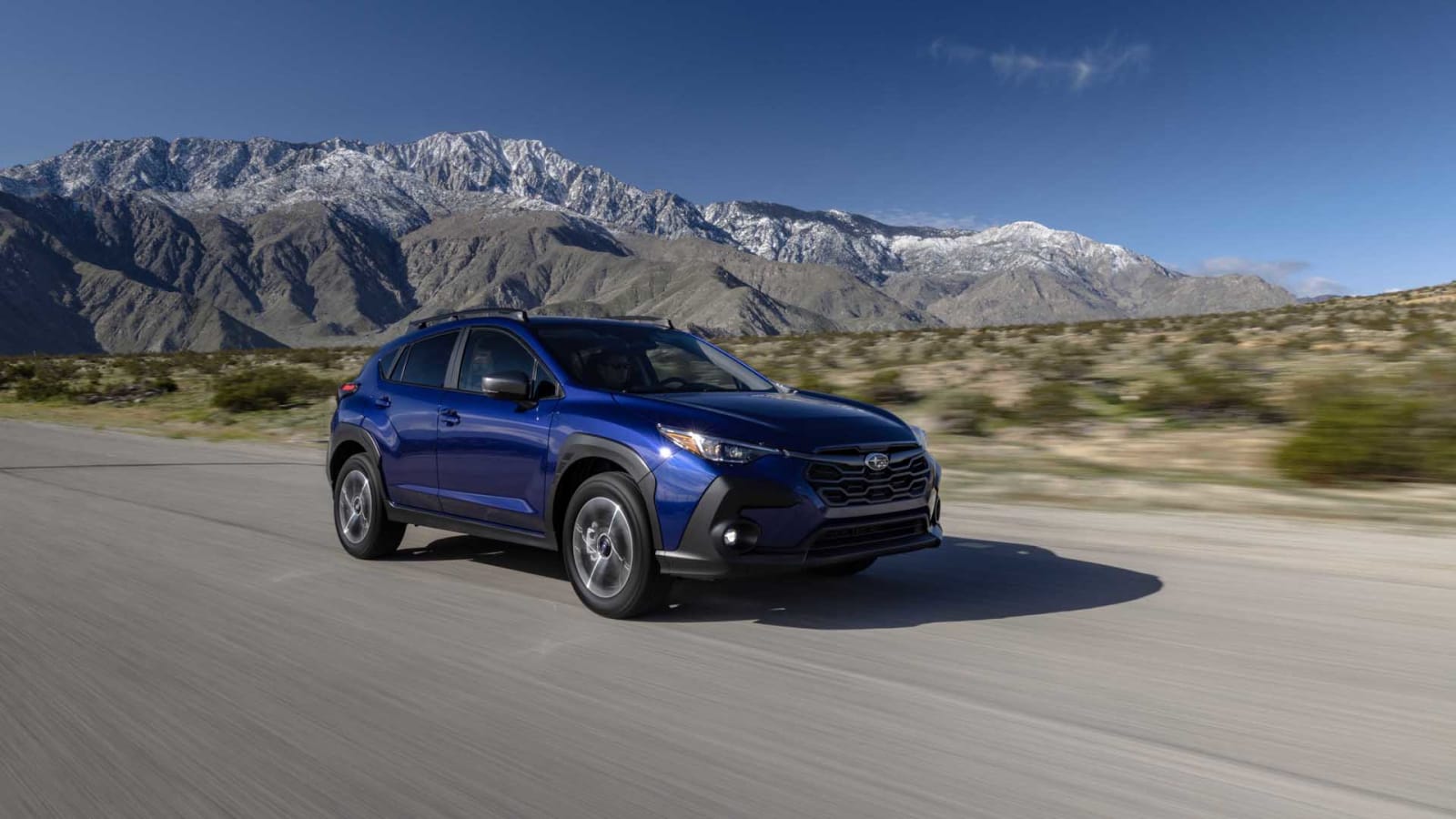
Merging onto a highway or passing slower traffic with the base engine requires patience and planning. We floored the pedal to get up to speed and the CVT kept the engine from sounding overly taxed by simulating a few shifts. Otherwise, there was enough power for ascending moderately steep grades and typical city driving. Considering the Sport trim costs only a bit more and gets virtually the same fuel economy, we’d suggest waiting for summer to get the more powerful 2.5-liter.
When letting off the accelerator, the Crosstrek tends to freewheel for a while without decelerating much. The brake pedal has an appropriate amount of effort to instill confidence and is easy to modulate for smooth stops. Most shoppers wouldn’t expect sporty handling from a lifted SUV like this, but the Crosstrek ably carves through curves with only a little body roll. Ride comfort is helped by somewhat soft suspension tuning and 17-inch wheels with compliant tire sidewalls. Road noise is well silenced by added sound insulation, and wind noise is barely there at highway speeds.
The comfortable ride is impressive when you consider the Crosstrek’s off-road abilities, as there’s usually a compromise required. With 8.7 inches of ground clearance, the Crosstrek can tackle much more than just a dirt road. We clambered up a steep rocky trail with no drama once we engaged the X-Mode drive setting that maximizes available traction at all four corners. Dropping down the other side, hill-descent control ably kept speeds manageable.
We were concerned when we found ourselves on soft sand, but even without X-Mode activated, the Crosstrek prevented digging down or getting beached. X-Mode operates at speeds up to 22 mph, and unlike its predecessor, the system will re-engage if you exceed that speed and slow back down. The Sport trim will add Snow/Dirt and Deep Snow/Sand sub-settings for X-Mode, but again, we didn’t get a chance to sample that version.
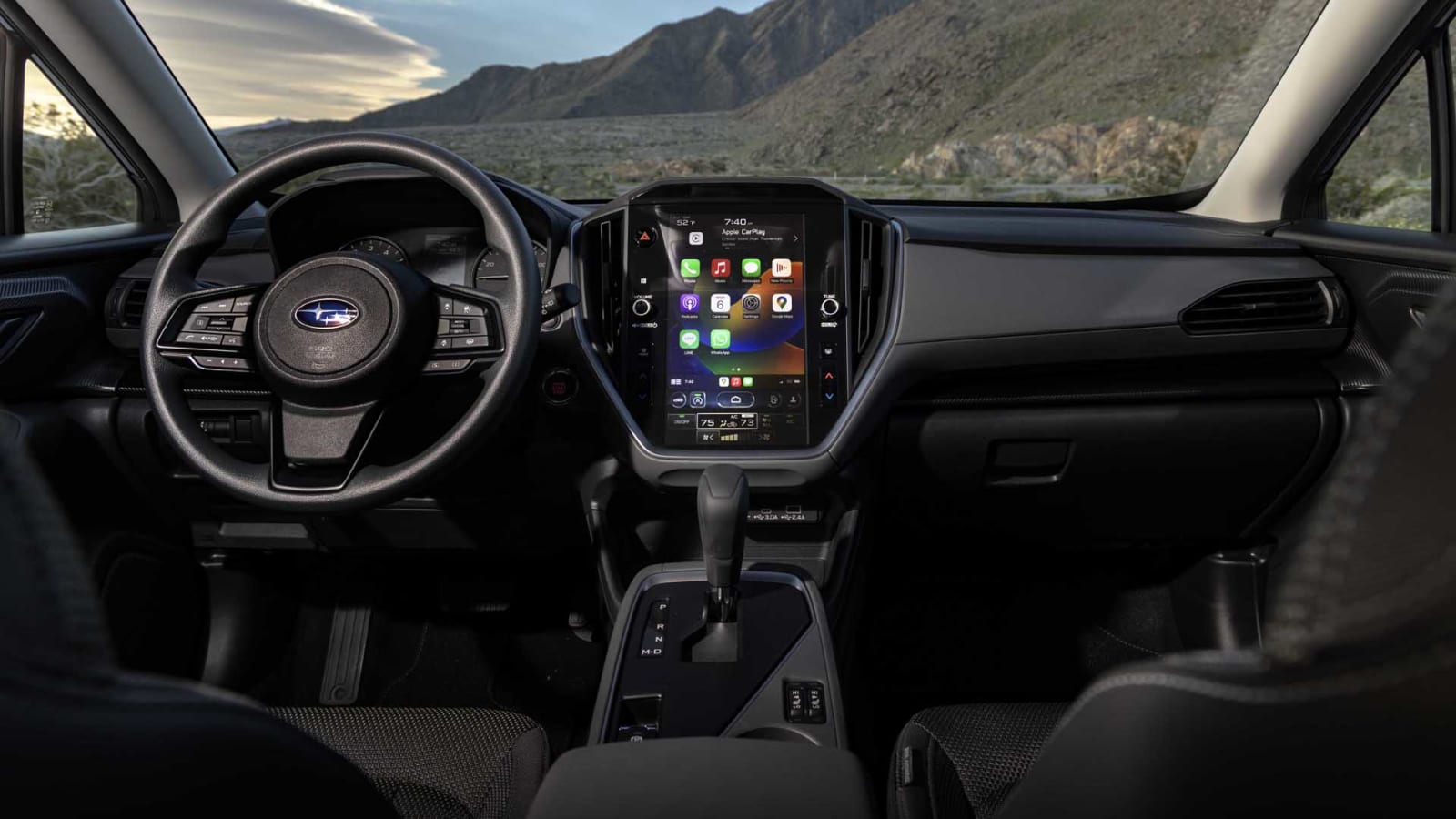
Much like the exterior, the Crosstrek’s interior follows a familiar theme laid down by its predecessor. Our Premium trim test car comes with a portrait-oriented 11.6-inch infotainment touchscreen that provides a more modern appearance than the previous generation as well as the base model’s unusual twin 7-inch displays. Both setups are also offered in the Outback and 2024 Impreza. Most climate controls have been moved to the touchscreen, but we’re pleased that there are still physical temperature buttons for the driver and front passenger.
The infotainment system is fairly easy to use, with large on-screen buttons and logical menus. There’s only the slightest of delays in its response to commands, and wireless versions of Apple CarPlay and Android Auto are standard. A wireless charging pad is optional on the Base and Premium trims and standard on higher models. Navigation is an option but only on the top Limited trim. That’s understandable, since most drivers (especially in the younger target demographic) will likely prefer their phone-based navigation.
The 2024 Crosstrek also includes a few safety feature enhancements, with a wider view for the EyeSight forward-looking cameras and the addition of automatic emergency steering that could swerve within its lane to avoid obstructions. There’s also a new rear-seat reminder.
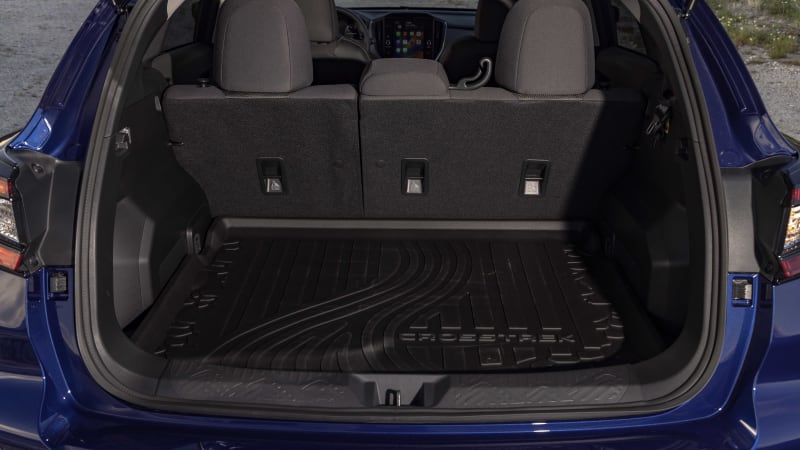
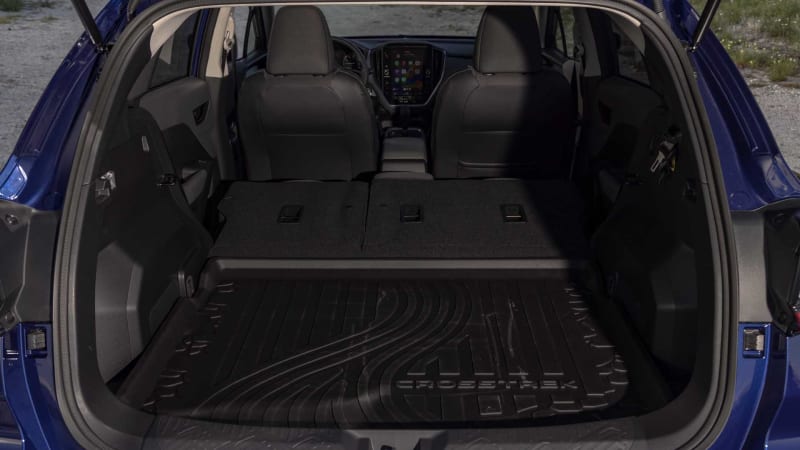
Outward visibility is noticeably better than most other SUVs, thanks to its narrow roof pillars. The cloth-upholstered seats kept us comfortable over hours of driving, with enough adjustments to please taller and smaller drivers alike. Front seat passengers have large center cupholders that can accommodate larger 32-oz Nalgene bottles as well as large door pockets and a deep center armrest bin. The rear seats can comfortably hold adult passengers, but taller occupants will bump into the headliner.
Behind those seats, the cargo space can carry as much as 19.9 cubic-feet of cargo. That’s a cu-ft smaller than before, but then the last generation was able to hold more than you’d expect from its cargo volume spec, so it’s still a competitive cargo area. Maybe not as much as some other SUVs in the class, though, so using those roof rails for extra storage may be necessary if you’re planning any big adventures, especially with more than two people aboard. Either way, small families would be better served by the larger and equally capable Forester.
While this third-generation Crosstrek doesn’t break much new ground, it keeps its momentum with incremental evolutionary improvements. Bringing back a new and improved hybrid powertrain and perhaps adding a more off-road capable Wilderness model would certainly broaden its appeal, but Subaru wouldn’t comment on the prospect of either of those possibilities. Even without those variants, though, the 2024 Subaru Crosstrek is an excellent choice.
Related Video:







